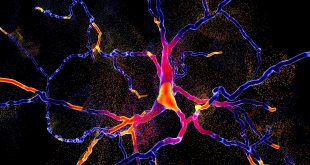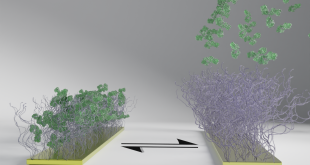In 2016, Canadian scientists descended three kilometres below the surface at Kidd Mine near Timmins, Ontario, in search of water, deep in the Precambrian rock. Much like Jules Verne’s characters in Journey to the Centre of the Earth, they rode vehicles down a sloping corkscrew path into the spell-binding world of a long-gone primordial ocean floor, where water bubbling with hydrogen and sulfate gases had the potential to support life.
At this subterranean level the team was astonished to find very salty, free-flowing water that smelled musty. Even more dramatically, it was over 2 billion years old, the oldest ever discovered.
The exploration was triggered by research carried out by geochemist
Dr. Barbara Sherwood Lollar, Canada Research Chair in Isotope Geochemistry of
the Earth and the Environment. Her work involves probing water samples from
mines for microbes that survive without sunlight, and applying new techniques
to pinpoint the source of groundwater pollution.
It’s work for which in part she was awarded the 2019 Gerhard Herzberg Canada Gold Medal for Science and Engineering this May – along with recognizing her contribution to shaping space exploration and the search for life on other worlds. The earth sciences professor is only the second woman to win the NSERC award in its 28-year history.
In collaboration with an international team of scientists, Dr. Sherwood Lollar also reported the first direct evidence that communities of microbes known as chemolithotrophs survive by using hydrogen and minerals deep inside crystalline rocks.
“The work being done in Canada to understand the subsurface of our planet is helping to shed light on possible ways to both sustain the earth’s water resources,” she explains, “but also to explore other planets and the extraterrestrial real estate.”
In 2016, Dr. Sherwood Lollar was named as a Companion of the Order of Canada “for her revolutionary contributions to geochemistry, notably in the development of innovative mechanisms for groundwater remediation, and for her discovery of ancient fluids that hold implications for life on other planets.” Also in 2016, she was awarded the Bancroft Award by the Royal Society of Canada. She received the Logan Medal in 2018.
Dr. Sherwood Lollar says that it’s important for scientists to build resilience against self-doubt and other barriers. In a Globe and Mail interview, she specifically pointed to challenges faced by female scientists: “There are places where the needle still isn’t shifting. A lot of people have been opening doors, but I think that perhaps what we’re recognizing as a society is that some of the things inside of those doors need to change, too.”
 BioLab Business Magazine Together, we reach farther into the Canadian Science community
BioLab Business Magazine Together, we reach farther into the Canadian Science community





